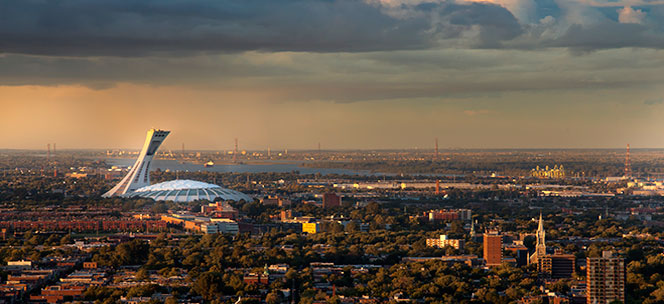Is funding another Olympics really the best use of Canadians’ tax dollars?

The federal government is about to waste more of your money.
At a time when taxes are increasing the cost of living, when investment is being chased away by the ever-growing cost to do business, when future generations are being asked to pay for today’s over-consumption, the federal government is still contemplating spending money on another Calgary Olympics.
From St. John’s to Victoria, Canadians are expected to pay $1.5 billion for Calgary’s sporting bonanza. But, who knows what the federal government will commit to spending if costs end up going over budget?
With the Olympics, going over budget is the rule rather than the exception. Since the 1960s, 19 Olympics have gone over budget, with an average cost overrun of 156 per cent. Canadian-hosted Olympics have been no stranger to these overruns either: Vancouver 2010 saw a cost overrun of 13 per cent, Calgary 1988 had one of 65 per cent and Montreal saw a staggering 720 per cent cost overrun that took three decades to pay off.
National governments have been burned in the past by these Olympic cost overruns. For the London 2012 games, governments were forced to spend $8.5 billion more than initially estimated in the bid, with the national government picking up nearly 90 per cent of these overruns. Before the Tokyo 2020 games begin, Japan’s national government must already contribute nearly $6 billion more than earlier projections. Lillehammer 1994, Atlanta 1996, Athens 2004 and Vancouver 2010 also left their national governments paying more as costs escalated.
The Canadian Taxpayers Federation has been very outspoken about the Olympic bid being a bad deal for Calgarians. But at least Calgary will get a few new facilities. What are the rest of Canadians getting? Well, nothing, really.
Why then, should a single mother in Toronto pay more taxes so someone in Calgary can enjoy a 16-day sporting event?
Many households are already paying more in property taxes, income taxes and carbon taxes. Businesses are feeling the pinch of higher taxes as well. Canada ranks poorly among other developed nations in attracting investment thanks, in part, to higher taxes on business. In 2017, 21 of 33 OECD countries had lower capital taxes than Canada, with developed countries continuing to reduce tax rates in future years.
Then there’s the growing debt pile. Runaway government spending has resulted in the federal government racking up over $660 billion in debt. The average Canadian owes over $17,000 in federal debt alone.
Eventually, Canadians will have to pay the piper. The only question is, how large of a bill do we want to pass on to our children and grandchildren?
Even beyond the finances, the federal government choosing to fund the Olympics has real-life, human impacts. Remember, Canadians have been told that there isn’t enough money to support our veterans. Canada’s aging population is going to wreak havoc on our creaking government health care system. The infrastructure needs for all levels of government has been estimated to be billions of dollars.
Here’s the thing Canadians need to think about. Your hard-earned money is going to build a mid-sized arena, a fieldhouse, facilities to accommodate athletes, media, sponsors and “dignitaries,” along with upgrades to professional sports stadiums in Calgary.
Do you think your tax dollars could be used better?
Aaron Wudrick is the federal director and Franco Terrazzano is the Alberta director with the Canadian Taxpayers Federation.
This column was originally published in the Toronto Sun on October 16, 2018.